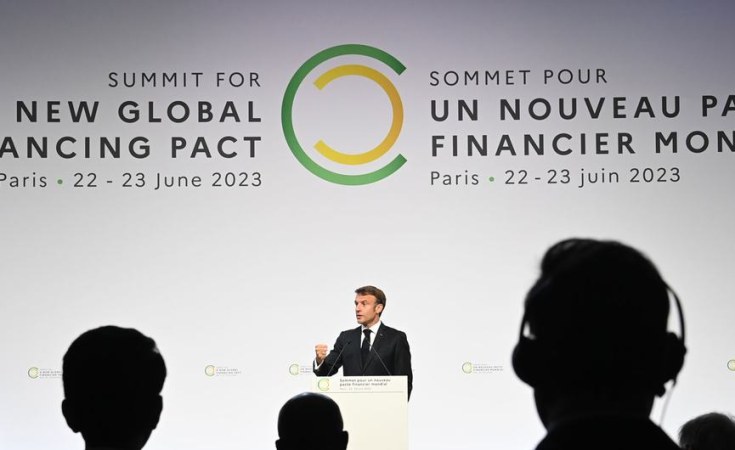Developing countries are buckling under high debt and exorbitant borrowing costs, that prevent them from reviving their economies, UN chief António Guterres said on Thursday.
Speaking at the Paris Finance Summit, Mr. Guterres said many African States were spending more on debt repayments than on desperately needed healthcare, and that over 50 countries were either in default or "dangerously" close to it.
The UN chief called for a debt relief mechanism that supports payment suspensions, longer lending terms and lower rates to make borrowing more affordable for poorer nations, as well as increased access to liquidity for developing countries via the International Monetary Fund's Special Drawing Rights.
Mr. Guterres also repeated his urgent call to end fossil fuel subsidies and increase climate adaptation funding for vulnerable countries.
Steps to beat poverty, hunger
"Taken together, these steps would help to beat poverty and hunger, uplift developing and emerging economies, and support investments in health, education and climate action," he said, stressing that the measures would enable a "giant leap" towards global justice.
Doing nothing is simply not an option and at the halfway point to reaching the 17 Sustainable Development Goals (SDGs) they are "drifting further away by the day", he warned delegates to the Summit for a New Global Financing Pact.
He said it was clear the international financial architecture built in the aftermath of World War Two "has failed in its mission to provide a global safety net for developing countries.
"It essentially reflects, even with some changes, the political and economic power dynamics of that time", when three quarters of today's nations weren't around the table at Bretton Woods.
'Outdated, dysfunctional, unjust'
"Nearly 80 years later, the global financial architecture is outdated, dysfunctional, and unjust. It is no longer capable of meeting the needs of the 21st century world: a multipolar world characterized by deeply integrated economies and financial markets. But also marked by geopolitical tensions and growing systemic risks."
He warned the current global financial system exacerbates inequalities, denying the poorest countries the credit and debt support they need and deserve.
European citizens received nearly 13 times more than African citizens under current rules for Special Drawing Rights to weather recent crises, a situation that is "profoundly immoral" said Mr. Guterres.
"A financial architecture which does not represent today's world is at risk of leading to its own fragmentation in a world where geopolitics is in itself a factor for fragmentation.
No solution without reform
"There will be no serious solution to this crisis without serious reforms."
He said change would not happen fast and was a question of power and political will.
"But as we work for the deep reforms that are needed, we can take urgent action today to meet the urgent needs of developing and emerging economies."
He said richer nations could establish "a really effective and time effective debt relief mechanism that supports payment suspensions, longer lending terms and lower rates, including for middle income countries with particular vulnerabilities, namely in relation to climate."
Development and climate finance can be better capitalized, and development banks reformed, allowing better coordination. He said credit rating agencies had become "deeply biased" and contributed to many of the recent financial crises, rather than helping avoid them.
He said taking immediate action towards wholesale reform could curb hunger, "uplift developing and emerging economies, and support investments in health, education and climate action."
"We can take steps right now - and take a giant leap towards global justice."
The UN chief said he was aware of the scale of the challenges the international community now faces.
'Urgent action'
"Power dynamics and constraints on global cooperation in today's world make problems more difficult to solve. But solutions are not impossible. And we can start now."
He said the following two days of discussion could yield results for millions of people in need.
"I urge you to make this meeting not just a cri du coeur for change, but a cri de guerre - a rallying cry for urgent action", the Secretary-General told the Summit.
"We are at a moment of truth and reckoning. Together, we can make it a moment of hope."


